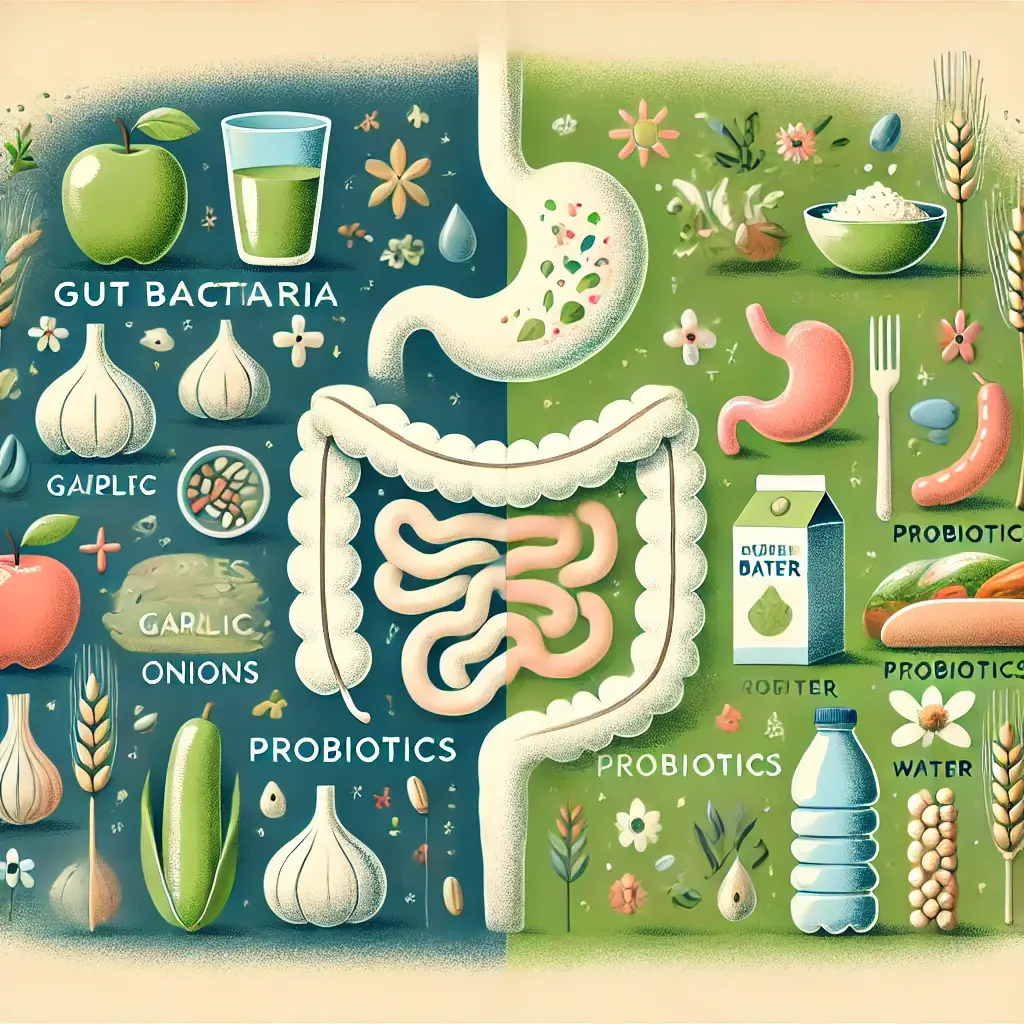Understanding the Impact of Digestive Discomfort
Bloating and gas are not merely minor inconveniences—they can profoundly affect your quality of life. From disrupting social interactions to causing physical discomfort, these symptoms often reflect the delicate interplay between diet, digestion, and gut health. While occasional flatulence is a natural byproduct of digestion, persistent bloating warrants closer attention to dietary habits and gastrointestinal function.
The Science Behind Bloating
Research has illuminated the multifactorial nature of bloating. Fermentable carbohydrates, often referred to as FODMAPs, are a leading dietary culprit. Beyond this, other factors such as fiber content, food intolerances, and even behaviors like eating too quickly can exacerbate symptoms. Understanding the mechanisms of these triggers is essential for managing digestive discomfort effectively.
Purpose of This Analysis
This article examines the underlying causes of bloating and gas, supported by current research, and outlines practical strategies to enhance digestive health. As with any health advice, persistent or severe symptoms should be addressed by a healthcare provider for tailored interventions.
Research-Based Food Triggers
The connection between certain foods and bloating is well-established, with multiple studies shedding light on the biological processes involved. Below are some major contributors:
Understanding FODMAPs and Gut Fermentation
FODMAPs (Fermentable Oligosaccharides, Disaccharides, Monosaccharides, and Polyols) are short-chain carbohydrates that are poorly absorbed in the small intestine. As they travel to the colon, gut bacteria ferment them, producing gases like hydrogen and methane. This fermentation process often results in bloating, discomfort, and altered bowel habits.
Common FODMAP Foods and Research Findings
Key FODMAP Foods: Apples, garlic, onions, milk, and wheat-based products are among the most common high-FODMAP foods. A landmark study published in Gastroenterology in 2017 demonstrated that individuals with irritable bowel syndrome (IBS) who adhered to a low-FODMAP diet experienced a 50-70% reduction in bloating symptoms (Shepherd & Gibson, 2017).
Understanding Food Intolerances
Lactose Intolerance: Approximately 68% of the global population has some degree of lactose malabsorption, leading to symptoms like bloating and diarrhea after consuming dairy products (Misselwitz et al., 2019).
Gluten Sensitivity: While less common, non-celiac gluten sensitivity can also trigger bloating. A study in Nutrients found that individuals with gluten sensitivity reported significant improvement in symptoms after eliminating gluten-containing foods (Volta et al., 2015).
Understanding Fiber’s Impact
Dietary fiber is crucial for gut health, but certain types—especially insoluble fiber—are more likely to produce gas. Foods like beans, lentils, and cruciferous vegetables (e.g., broccoli and cauliflower) are high in fermentable fiber that gut bacteria break down, resulting in gas production.
Lifestyle Factors Affecting Digestion
Simple habits such as chewing gum, drinking carbonated beverages, or eating too quickly can introduce excess air into the digestive system, contributing to bloating. Similarly, stress has been shown to exacerbate gastrointestinal symptoms by altering gut motility and sensitivity (Farhadi et al., 2020).
Managing Bloating Through Diet
Adopting a low-FODMAP diet has been scientifically validated as an effective approach to managing bloating, particularly for IBS patients. This involves eliminating high-FODMAP foods for 4-6 weeks, followed by gradual reintroduction to identify specific triggers.
The Role of Probiotics
Probiotics may help restore gut microbiota balance, reducing symptoms of bloating and gas. A 2022 review in Clinical Gastroenterology and Hepatology identified strains like Bifidobacterium infantis and Lactobacillus acidophilus as particularly beneficial for improving gut function (Ford et al., 2022).
Mindful Eating Practices
Chew Slowly: Taking time to chew food thoroughly can reduce air intake and improve digestion.
Smaller Portions: Eating smaller, more frequent meals can prevent overloading the digestive system.
Hydration and Physical Activity
Water Intake: Adequate hydration supports smoother digestion and reduces bloating.
Physical Activity: Moderate exercise has been shown to improve gut motility, alleviating bloating symptoms (NICE, 2021).
Final Thoughts on Digestive Health
Bloating and gas are common yet manageable digestive concerns. By identifying dietary triggers and making informed lifestyle changes, you can significantly reduce discomfort and improve gut health. Scientific advancements, such as the low-FODMAP diet and probiotic therapies, offer effective tools for addressing these issues. However, persistent or severe symptoms should prompt consultation with a healthcare provider to rule out underlying medical conditions. For further reading, explore studies in journals like Gastroenterology and Clinical Nutrition.
Research References
Shepherd, S. J., & Gibson, P. R. (2017). “The low FODMAP diet for managing IBS.” Gastroenterology.
Misselwitz, B., et al. (2019). “Lactose intolerance: From diagnosis to dietary management.” The Lancet Gastroenterology & Hepatology.
Volta, U., et al. (2015). “Non-celiac gluten sensitivity: Clinical relevance and diagnostic challenges.” Nutrients.
Ford, A. C., et al. (2022). “Probiotics in the management of IBS symptoms.” Clinical Gastroenterology and Hepatology.
Farhadi, A., et al. (2020). “The impact of stress on gastrointestinal disorders.” American Journal of Gastroenterology.
NICE. (2021). “Diet and lifestyle management for IBS.” National Institute for Health and Care Excellence.
